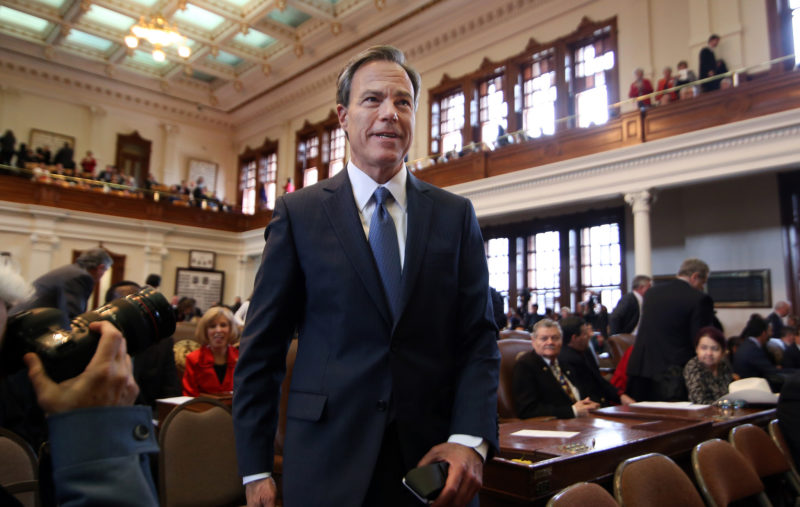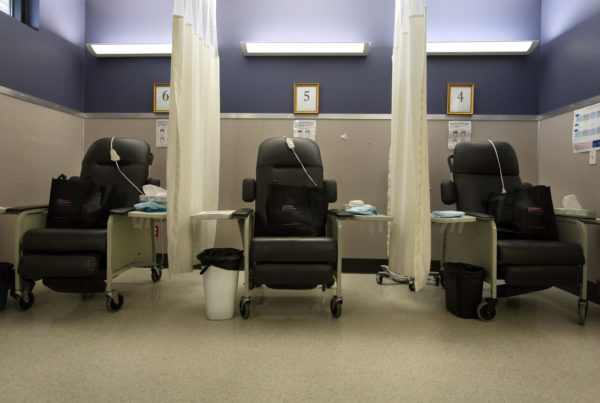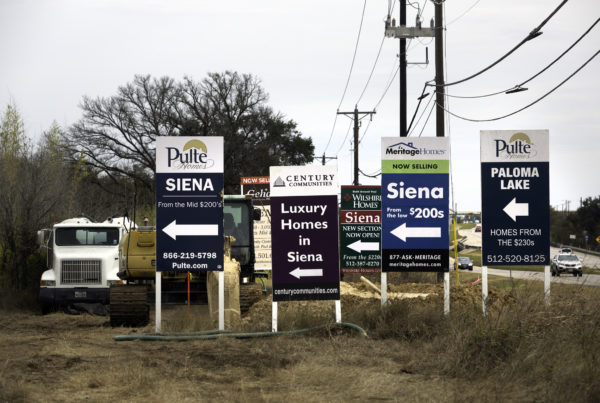The Texas Legislature’s two houses have about nine weeks to approve a balanced two-year budget. But disagreement over accounting “gimmickry” is dividing lawmakers in the House and Senate. The Senate finance committee approved a $107 billion budget, but House Speaker Joe Straus says that the senators relied on questionable accounting practices to avoid tapping into the state’s rainy day fund, a savings account funded mainly by oil and gas tax revenue.
“This is the Texas Legislature. We are not Enron and I am not interested in cooking the books just to avoid a vote on the rainy day fund,” Straus says. “Gimmickry is not going to get us out of here this time.”
Austin American-Statesman reporter Sean Collins Walsh says that the accounting “gimmicks” Straus referred to involve the way in which the Senate finance committee hoped to implement a new allocation of transportation funding.
In 2015 voters approved Proposition 7 which amended the state Constitution and is set to go into effect next year. The amendment dedicates up to $2.5 billion of state sales tax revenue to transportation funding.
“Because money is tight this year as they form the next budget, what the senate did is delay the payment for the 2019 transportation funding to the first month of the 2020 budget cycle, making it the next legislature’s problem,” Collins Walsh says.
This is how House Speaker Joe Straus says that finance committee is “cooking the books.”
“They are counting the money for the transportation funding this cycle but they’re counting the payment for the next cycle. So it’s appearing twice on the books is the House’s complaint,” Collins Walsh says.
With several issues slated as top priorities for legislators this session, including reforming the child welfare system and ramping up mental health service funding, state lawmakers are at odds in their efforts to find sources of funding.
Some legislators suggest using money from the rainy day fund which currently holds about $10 billion. Comptroller Glenn Hegar says that the fund, which is the largest of its kind in the country, can be tapped without harming the state’s credit rating.
If the fund remains untouched, however, it is estimated to grow to $11.9 billion by August 2019.
“There are a lot of hard-line conservatives in the Senate who think that this should not be touched except in the more dire of circumstances or for one time expenses and that it’s not meant to be used for ongoing expenses,” Collins Walsh says.
This year’s legislative session ends in two months. Lawmakers will have to settle their budget disputes in a conference committee, which will meet behind closed doors.
Written by Emma Whalen.















